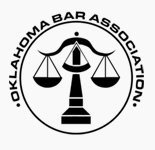The complex nature of the U.S. Internal Revenue Code leaves many Texas filers seeking assistance from preparation professionals. While many tax preparers perform their services ethically, others might engage in deceptive or abusive practices. Taxpayers may not realize the tax reduction strategies these preparers offer are dubious and may lead to an audit.
Tax preparers and abusive practices
A tax preparer could advertise a promotion that promises to help people save money on their tax obligations. The client might find the sales pitch for the service appealing but may not realize the actions proposed by the prepared might not be legal.
Such tax preparers could hope that the IRS never audits the client, allowing the preparer to get away with the activity. The client might not know that an audit could take place several months or years after filing a return and opts to pay the preparer a fee to find unique deductions and tax reduction strategies.
Some illicit practices could be fairly easy to spot, including attempts to move personal expenses into business deductions. Other steps could involve invoking archaic tax rules that may not apply, and the client has no idea about the dubious nature.
A tax audit and assessment follows
The IRS may challenge deductions or other elements related to the return’s filing. The IRS could assess additional tax on a return to the shock of the taxpayer. The agency might start tax litigation at some point to recover money from those who fail to pay. Depending on the issue, the taxpayer could sue the IRS in tax court over the assessment.
Sometimes, an appeal might be enough to overcome errors made by the IRS. However, blatantly illegal tax preparer actions won’t likely survive an appeal or Tax Court challenge. That said, the taxpayer could point to the preparer’s wrongdoing and ask for a reduction in penalties and non-interest assessments.












